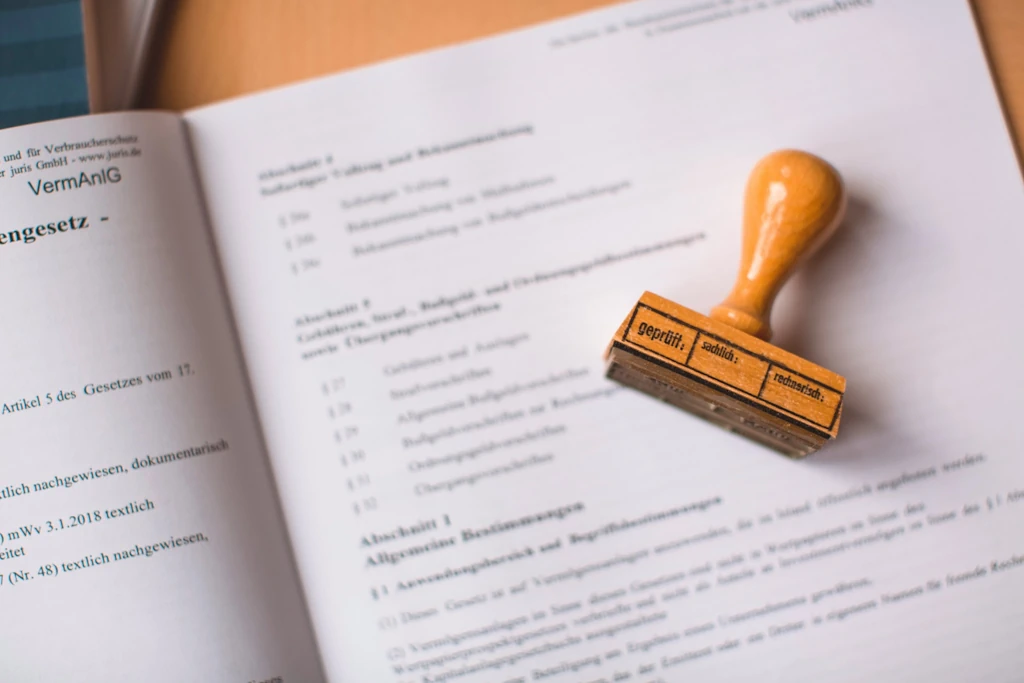Becoming a German citizen is a significant milestone for many immigrants, but the process can often seem complex and time-consuming. This article provides a comprehensive overview of the naturalization timeline in Germany, exploring the various factors that can influence the duration of the process. From legal requirements to regional variations, we’ll guide you through what to expect and offer insights on how to navigate potential delays.
Whether you’re just starting your journey to German citizenship or are already in the middle of the process, this guide will help you understand the timeline and prepare for each step along the way.
- Average Processing Times Across Different German Cities
- Impact of the New Naturalization Act (Effective June 27, 2024)
- Factors Influencing Naturalization Duration
- Measures to Speed Up the Naturalization Process
- Legal Options for Addressing Delays
- Special Cases and Expedited Paths to Citizenship
- Regional Variations in Processing Times
- Post-Application Process and Timeline
- Preparing for Potential Delays
- Our Recommendation

Average Processing Times Across Different German Cities
The time it takes to become a German citizen can vary greatly depending on where you live in Germany. Let’s look at how processing times differ across cities and what factors influence these differences.
Comparison of Fast vs. Slow Naturalization Authorities
Some cities in Germany process citizenship applications much faster than others. Here’s what you need to know:
- Fast cities: Places like Nuremberg, Cottbus, and Berlin typically process applications in 6 to 15 months. If you live in one of these cities, you might become a German citizen more quickly.
- Slow cities: Cities such as Düsseldorf, Stuttgart, and Frankfurt am Main can take 2 to 5 years to process applications. If you’re in one of these cities, you might need to be more patient.
Factors Affecting Processing Times in Different Regions
Several things can influence how long it takes to process your citizenship application in different parts of Germany:
- Number of applications: Cities with more immigrants often have more applications to process, which can lead to longer waiting times.
- Staff availability: Some cities have more staff to handle applications, which can speed up the process.
- Local policies: Different cities might have different ways of handling applications, which can affect processing times.
- Complexity of cases: If many applications in a city are complicated, it can slow down processing for everyone.
Understanding these differences can help you set realistic expectations for your own citizenship application. If you’re concerned about long waiting times in your area, it might be helpful to get legal support. A lawyer who specializes in citizenship applications can often help speed up the process and navigate any local challenges. They can also advise you on whether applying to a different city might be beneficial if that’s an option for you.
Remember, while these processing times can give you a general idea, your individual case might be different. That’s why it’s often helpful to have professional guidance throughout your citizenship journey.
Impact of the New Naturalization Act (Effective June 27, 2024)
The new Naturalization Act brings important changes that could affect how long it takes to become a German citizen. Let’s look at the main changes and how they might speed up the process for you.
Reduction in Required Residency Duration
The new law makes it easier to apply for citizenship sooner. Here’s what you need to know:
- Before the change, you usually had to live in Germany for eight years before applying for citizenship.
- Now, you only need to live in Germany for five years before you can apply.
- If you have demonstrated strong integration into German society, you may be eligible to apply after just three years.
Changes in Language Requirements
The new law also makes the language part of becoming a citizen a bit easier for some people. Here’s what’s new:
- You still need to show that you can speak German well enough to handle everyday life.
- But now, if you’re over 67 years old, you don’t need to take a formal language test.
- For everyone else, showing that you can speak German at a B1 level is still important.
Introduction of Dual Citizenship
One of the biggest changes is about keeping your old citizenship when you become German. Here’s what this means:
- Before, most people had to give up their old citizenship to become German.
- Now, you can keep your old citizenship and become German, too.
- This means you don’t have to choose between your home country and Germany anymore.
These changes could make the process of becoming a German citizen faster and easier for many people. But it’s important to remember that the naturalization process can still be complicated. There are many rules to follow and documents to prepare.
Factors Influencing Naturalization Duration
The time it takes to become a German citizen can vary a lot depending on different factors. Let’s look at some of the main things that can affect how long your application might take.
Increase in Application Numbers
There are more people applying for German citizenship now than before, which can make the process slower. Here’s why:
- The new citizenship law coming in June 2024 is making more people eligible to apply.
- Many people who came to Germany during the refugee crisis of 2015-2017 are now meeting the residency requirements to apply.
- This increase in applications means the authorities have more work to do, which can lead to longer waiting times for everyone.
Staff Shortages at Immigration Authorities
The offices that handle citizenship applications don’t always have enough people to process all the applications quickly. This can cause delays:
- Many immigration offices are understaffed, which means each employee has to handle more applications.
- Training new staff takes time, and sometimes mistakes are made due to lack of experience.
- This shortage of staff can lead to longer processing times for your application.
Complexity of Individual Cases
Some citizenship applications are more complicated than others, which can make them take longer to process. Here’s what can make a case complex:
- If you’ve lived in many different places in Germany, it might take longer to check all your residency details.
- If you have a criminal record, even for minor offenses, your case will need extra review.
- If you’re from a country that doesn’t allow dual citizenship, there might be extra steps involved.
Understanding these factors can help you see why the citizenship process might take longer than you expect. But don’t worry - there are ways to make sure your application goes as smoothly as possible.
Measures to Speed Up the Naturalization Process
While becoming a German citizen can take some time, there are ways to make the process go faster. Let’s look at some steps you can take to speed things up.
Ensuring Completeness and Accuracy of Application Documents
Getting your paperwork right from the start can save you a lot of time. Here’s what you need to know:
- Double-check all your forms to make sure they’re filled out correctly and completely.
- Gather all the required documents before you apply. This includes things like your birth certificate, passport, and language certificate.
- Make sure all your documents are up to date and haven’t expired.
- If any documents need to be translated, use an official translator to avoid delays.
Effective Communication with Authorities
Staying in touch with the people handling your application can help move things along. Here’s how to do it:
- Respond quickly to any requests for more information or documents.
- Keep your contact information up to date so you don’t miss any important messages.
- If you’re not sure about something, don’t be afraid to ask questions. It’s better to get clarification than to make a mistake.
Utilizing Online Application Options
Many places now let you apply for citizenship online, which can be faster. Here’s what you should know:
- Check if your local authority offers online applications. If they do, this can save time compared to paper applications.
- Make sure you have good scans or photos of all your documents before you start the online process.
- Follow the online instructions carefully to avoid mistakes that could slow things down.
Benefits of Legal Assistance
Getting help from a lawyer who knows about citizenship can really speed things up. Here’s how a lawyer can help:
- They know exactly what documents you need and can help you get everything together quickly.
- They can spot potential problems in your application before you submit it, saving time on corrections later.
- They can communicate with the authorities on your behalf, which can sometimes get faster responses.
- If there are any delays or issues, a lawyer knows how to address them effectively.
Legal Options for Addressing Delays
Sometimes, the naturalization process can take longer than expected. If you’re facing long delays, there are legal steps you can take to move your application forward.
Filing a Lawsuit for Failure to Act (Untätigkeitsklage)
If your application has been stuck for a long time without any action, you have a legal option to speed things up. Here’s what you need to know:
- After waiting for three months without a decision on your application, you can file a special kind of lawsuit called an “Untätigkeitsklage”.
- This lawsuit is a way to tell the court that the authorities are taking too long to make a decision on your case.
- The court can then order the authorities to process your application within a certain timeframe.
When and How to Pursue Legal Action
Taking legal action is a big step, and it’s important to know when and how to do it. Here’s some guidance:
- Consider legal action if you’ve been waiting for more than three months and haven’t received any updates on your application.
- Before filing a lawsuit, try contacting the authorities one more time to ask about the status of your application.
- If you decide to pursue legal action, it’s highly recommended to get help from a lawyer who specializes in immigration law.
Special Cases and Expedited Paths to Citizenship
While the standard naturalization process can take several years, there are some special cases where you might be able to become a German citizen more quickly. Let’s look at these special situations.
Naturalization for Spouses of German Citizens
If you’re married to a German citizen, you might be able to get German citizenship faster. Here’s what you need to know:
- You can apply for citizenship after living in Germany for just three years if you’ve been married to a German citizen for at least two years.
- You’ll still need to meet other requirements, like having good German language skills and being able to support yourself financially.
- This shorter path can save you several years compared to the standard naturalization process.
Options for Descendants of Nazi Persecution Victims
Germany has special rules for people whose families lost their German citizenship due to Nazi persecution. Here’s how it works:
- If your parents or grandparents had to flee Germany because of the Nazis, you might be eligible for German citizenship.
- This process is often quicker than regular naturalization because you’re reclaiming citizenship that was unfairly taken from your family.
- You don’t need to live in Germany or speak German to apply through this route.
Citizenship by Birth or Adoption
In some cases, you might already be a German citizen without knowing it. Here are two ways this can happen:
- If you were born to at least one German parent, you might automatically be a German citizen, even if you were born outside of Germany.
- If you were adopted by German parents as a child, you might have gained German citizenship through the adoption.
Regional Variations in Processing Times
The time it takes to become a German citizen can vary a lot depending on where you live in Germany. Let’s look at how different states handle applications and how you can use this information to your advantage.
Comparison of Processing Times in Different German States
Different parts of Germany process citizenship applications at different speeds. Here’s what you need to know:
- Fast states: Some states like Berlin, Brandenburg, and Thuringia are known for processing applications more quickly, often within 6 to 15 months.
- Slow states: Other states like Baden-Württemberg, Bavaria, and North Rhine-Westphalia can take much longer, sometimes up to 2 to 5 years.
- City differences: Even within states, big cities might be slower than smaller towns because they have more applications to handle.
Strategies for Choosing Where to Apply
If you have a choice about where to apply for citizenship, you might be able to speed up your process. Here are some tips:
- Research processing times: Look up how long different cities or states usually take to process applications.
- Consider moving: If you’re not tied to one place, you might think about moving to a faster-processing area.
- Look at smaller towns: Sometimes, smaller towns process applications faster because they have fewer people applying.
- Check online options: Some places let you apply online, which can be faster than paper applications.
Post-Application Process and Timeline
After you submit your naturalization application, there are several steps before you become a German citizen. Let’s look at what happens after you apply and how long each step might take.
Waiting Period After Submission
Once you’ve submitted your application, you’ll need to wait for the authorities to process it. Here’s what you should know:
- The waiting time can vary a lot depending on where you live and how busy the office is.
- On average, you might wait anywhere from 6 months to 2 years for your application to be processed.
- During this time, it’s important to keep all your documents up to date, like your residence permit.
Interview and Oath-Taking Ceremony
If your application is approved, you’ll be invited for an interview and to take an oath. Here’s what to expect:
- The interview is usually a short meeting where they might ask you some questions about Germany and your reasons for wanting to become a citizen.
- After the interview, you’ll be asked to take an oath of loyalty to the German constitution.
- This step usually happens within a few weeks or months after your application is approved.
Receiving the Naturalization Certificate
The final step is getting your naturalization certificate, which makes you officially German. Here’s what happens:
- You’ll be invited to a ceremony where you’ll receive your naturalization certificate.
- This usually happens on the same day as your oath-taking or shortly after.
- Once you have this certificate, you’re officially a German citizen!
Preparing for Potential Delays
While everyone hopes for a quick naturalization process, it’s important to be ready for possible delays. Let’s look at how you can prepare yourself for a potentially longer wait.
Setting Realistic Expectations
It’s important to understand that becoming a German citizen usually takes some time. Here’s what you should keep in mind:
- The average processing time for naturalization applications can range from 6 months to 2 years or more.
- Your specific case might take longer or shorter depending on various factors, like where you live and how complex your situation is.
- Remember, patience is key in this process, but being well-prepared can help things go more smoothly.
Planning for Extended Processing Times
Since the naturalization process can take longer than expected, it’s good to have a plan. Here are some tips:
- Keep your important documents up to date, like your passport and residence permit.
- Continue to meet all the requirements for naturalization, even while you’re waiting.
- Stay informed about any changes in immigration laws that might affect your application.
- Consider setting up a system to regularly check on the status of your application.
Maintaining Valid Residence Permits During the Waiting Period
While you’re waiting for your naturalization to be processed, it’s crucial to keep your current residence status valid. Here’s what you need to do:
- Make sure your residence permit does not expire while you’re waiting for naturalization.
- Apply for extensions of your residence permit well before it expires.
- Keep meeting all the conditions of your current residence permit, like having a job or studying.
Our Recommendation
Navigating the German citizenship process can be complex and time-consuming, but you don’t have to do it alone. We strongly recommend seeking professional legal assistance to help streamline your application, potentially reduce processing times, and increase your chances of success. Our team of experienced immigration lawyers specializes in German naturalization and can provide invaluable support throughout your journey.
Ready to take the next step towards becoming a German citizen? Don’t let the complexities of the process hold you back. Contact us today for a personalized consultation. Our experts will assess your unique situation, guide you through each step of the naturalization process, and help you avoid common pitfalls that could delay your application. Let us help you achieve your goal of German citizenship as efficiently as possible. Call us now or fill out our online contact form to get started on your path to becoming a German citizen!
We Have Answers!

 EN
EN  UA
UA  DE
DE  RU
RU 
